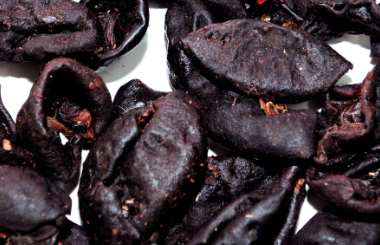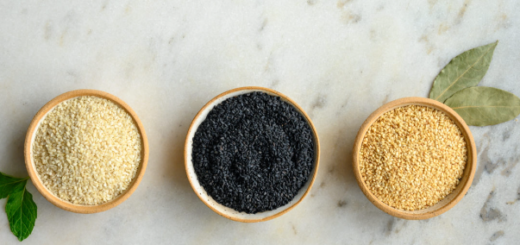The Magic of Methi: Unveiling the Health Benefits of Fenugreek Leaves
Discover the secret powers of Methi leaves in boosting your health and wellness – a culinary gem packed with benefits!
 Image courtesy of PhotoMIX Company via Pexels
Image courtesy of PhotoMIX Company via Pexels
Table of Contents
- Nutritional Content of Fenugreek Leaves
- Health Benefits of Fenugreek Leaves
- Ways to Incorporate Fenugreek Leaves into Your Diet
- Conclusion
Introduction: Fenugreek leaves, commonly known as Methi, are a powerhouse of nutrition and health benefits. These humble leaves have been used for centuries in traditional medicine and culinary practices across the globe. Let’s dive into the magical world of Fenugreek leaves and uncover the numerous health benefits they offer.
Nutritional Content of Fenugreek Leaves
Fenugreek leaves are packed with essential vitamins and minerals, making them a vital addition to a balanced diet. These leaves are particularly rich in fiber and protein, two crucial nutrients for overall health and well-being.
Discover the Health Benefits of Fenugreek Leaves
Subscribe to our newsletter for exclusive tips and recipes!
Despite their small size, fenugreek leaves contain a significant amount of iron, potassium, calcium, and magnesium, essential for various bodily functions.
The abundance of antioxidants in fenugreek leaves contributes to their powerful health properties, protecting the body from oxidative stress and inflammation.
Health Benefits of Fenugreek Leaves
Aids in digestion and relieves constipation: Fenugreek leaves are known for their digestive properties. The high fiber content helps promote healthy digestion and alleviates constipation.
Helps regulate blood sugar levels: Fenugreek leaves contain compounds that may help lower blood sugar levels and improve insulin sensitivity, making them beneficial for individuals with diabetes.
Improves heart health: The soluble fiber in fenugreek leaves can help reduce cholesterol levels and support heart health. Regular consumption of these leaves may contribute to a healthy heart.
Boosts immunity: Fenugreek leaves are a rich source of vitamins A and C, essential for a robust immune system. Including these leaves in your diet can help strengthen your body’s defenses against infections and illnesses.
Enhances skin and hair health: The abundance of antioxidants in fenugreek leaves promotes healthy skin and hair. These leaves can help combat skin issues like acne and promote hair growth and shine.
Ways to Incorporate Fenugreek Leaves into Your Diet
Cooking with fresh fenugreek leaves: Fresh fenugreek leaves can be used in a variety of dishes, including curries, stir-fries, and salads. Their distinctive flavor adds a unique touch to culinary creations.

Using fenugreek leaves in teas and infusions: Fenugreek leaves can be brewed into a fragrant tea that offers a range of health benefits. Simply steep a few leaves in hot water for a soothing and therapeutic beverage.
Incorporating fenugreek leaves into spice blends: Fenugreek leaves are a common ingredient in spice mixes like curry powder and garam masala. Adding a sprinkle of fenugreek leaves to your dishes can enhance their aroma and flavor profile.
Conclusion
In conclusion, fenugreek leaves, or Methi, are a potent source of nutrition and health benefits. From aiding digestion to boosting immunity and improving skin and hair health, these leaves offer a myriad of advantages for overall well-being. Consider incorporating fenugreek leaves into your daily diet to harness their magic and experience a healthier lifestyle.





